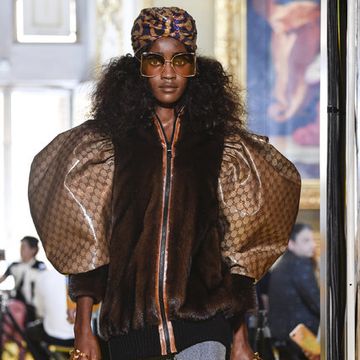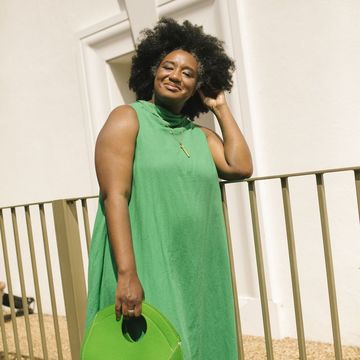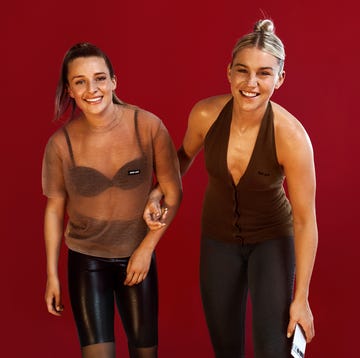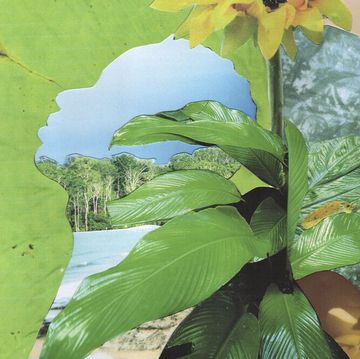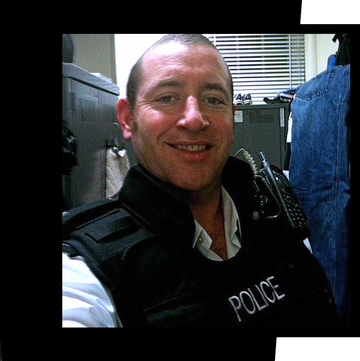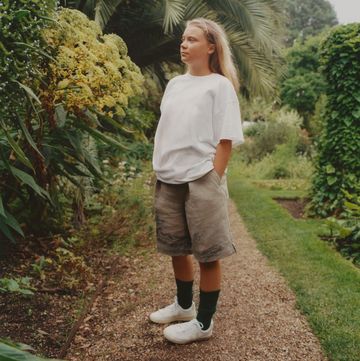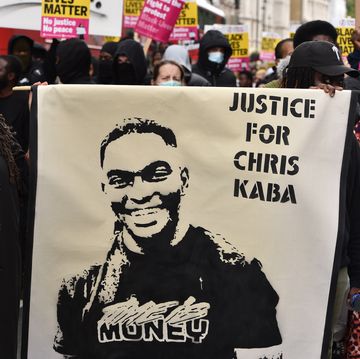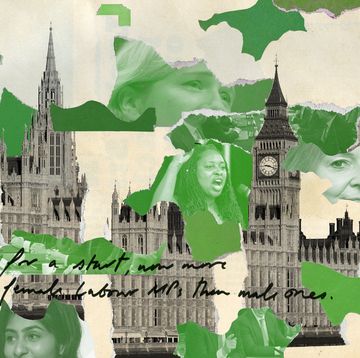Sustainability has been one of the year’s hottest topics. Whether it’s by swapping disposable cups for a reusable ones, ditching the plastic straws, or shopping more mindfully – we’re all trying to reduce our impact on the planet. In September, ELLE even devoted its biggest issue of the year to the subject.
But one thing you don’t hear people talking about is the impact sanitary products have on the environment. In the UK, the average woman uses more than 11,000 tampons, pads and panty liners in her lifetime. But most contain plastic (as well as a host of other chemicals) rendering them unrecyclable.
The result? More than 200,000 tons of waste per year.
Enter Albany Mae, a new company founded by 27-year-old Londoner Lauren Harvey. Based in north London, it offers biodegradable tampons made from organic cotton. We caught up with Lauren to find out why the tampon industry needs an update….
What is Albany Mae?
Albany Mae is an organic tampon subscription service that provides women with an ethical and sustainable choice whilst making their daily routine just that bit easier.
Why did you set it up?
Buying organic food has become second nature for a huge number of people - however we have never stopped and thought about our sanitary products. Discovering that manufacturers aren’t required to disclose the ingredients used in tampons was disconcerting.
I used to bring it this up in conversation with my friends and quickly discovered they were also completely unaware of it. This spurred me into looking at the components of everyday available tampons and found that they included synthetic fibres, chlorine, bleach, Dixon residues and traces of pesticides and insecticides - quite a mixture!
If we wouldn’t put it in our mouth why were we allowing it to be put into one of our most absorbent organs?
What makes Albany Mae better for the environment?
Using 100% certified organic tampons reduces skin irritations and cramps and eliminates pesticides and insecticides. Plus, they're completely biodegradable unlike the large majority of other tampons, which contain plastics. Conventional tampons (and many other feminine hygiene products) are predominantly disposable but not biodegradable - they create an enormous amount of waste.
Why don't you use applicators?
Tampon applicators are made up of plastic and pigments to add colour. The production of plastic for a tampon applicator requires a lot of energy, which yet again takes a toll on the environment. America and the UK use the highest number of applicators. When you visit other countries - especially in Europe - it is actually quite hard to find tampons that have an applicator. A recent study found there are around nine plastic tampon applicators for every 1km of UK beach.
How does the subscription model work?
We want to make tampons become something that you no longer have to think about. When signing up, you select the date that you want your tampons to be delivered every month (we suggest three days before your period is due) and we will make sure that every month a new box, that fits through your letterbox, is sent to you on time.
It’s not easy to set up your own business – how did you go about it?
I became an expert ‘Googler’ - I read everything and anything I could and would ask advice from anyone I met. Even if I knew I only had two minutes in a lift with them I would fire questions to try and figure out my next steps.
Why do you think there isn’t more of a conversation about sustainable sanitary products already?
The problem with stigma is that it often denies women a vocabulary to deal with the issues around menstrual health and hygiene. Open dialogue is the first step in changing the way women deal with menstruation and can create awareness around the need make better and informed choices.
The tampon tax has received a huge amount of attention recently. What are your thoughts on it?
Well it's simple - it should never have been implemented. Jaffa cakes and razors are seen as necessities and we don’t pay tax on them, yet sanitary products are classified as a 'luxury' item.
When this was debated about in the Government committee, David Gauke said that the government anticipated zero rate being in place by 1st April 2017 - this hasn’t been achieved. It is something that has been always put on the back burner. Things are improving, however, now that we have the tampon tax fund, which has raised £47 million since 2015 for charities supporting women.
What about period poverty? What would you like to see politicians do more of to address it?
Of course, politicians need to have a universal plan of what they are going to do to make sure this isn’t something any girl has to suffer in their lifetime. It can affect their education as girls don’t want to attend school during their period and also heightens the taboo about them.
Periods are a natural cycle and they shouldn’t prevent girls or women achieving in this world because they do not have sufficient and good sanitary products. We are in the process of partnering with a homeless charity to provide sanitary products to them on a monthly basis, as a small step to redress this inequality.
At the moment your tampons are available online-only. Do you plan to make Albany Mae available in shops?
Yes, we want to make organic tampons as accessible as conventional ones and having a store presence will certainly achieve that. We are also looking to expand our range providing mix and match boxes so that our customers can tailor they boxes to suit their flow.




